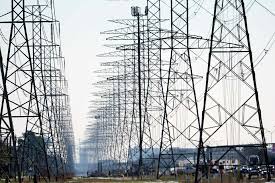
Oklahoma Delegation Backs GRID Power Act in U.S. House
All five members of Oklahoma’s U.S. House delegation voted this week in favor of the GRID Power Act (H.R. 1047), a Republican-backed bill that aims to prioritize dispatchable power over some renewable projects in the nation’s congested electric grid.
What the Bill Does
The GRID Power Act passed narrowly in the House, 216–206. The legislation directs the Federal Energy Regulatory Commission (FERC) to allow grid operators—including transmission providers, Regional Transmission Organizations (RTOs), and Independent System Operators (ISOs)—to fast-track dispatchable energy projects through the grid’s interconnection queue.
Supporters argue this change will help get critical baseload projects online faster, address shortages caused by retiring power plants, and better support the nation’s rising demand for electricity.
Balderson’s Push for Reliability
Rep. Troy Balderson (R-Ohio), who introduced the bill, said the measure is designed to prevent a looming reliability crisis.
“With American power demand far outpacing our ability to generate more electricity, our grid is heading toward a reliability crisis,” Balderson stated after the vote.
He emphasized that the bill would clear the backlog of projects and provide grid operators with tools to bring new power online quickly. According to Balderson, the legislation ensures operators can still conduct feasibility and system-impact studies before approving interconnection agreements.
Oklahoma Delegation’s Support
Reps. Stephanie Bice, Josh Brecheen, Tom Cole, Kevin Hern, and Frank Lucas all voted in favor of the bill. Their support signals Oklahoma’s alignment with efforts to prioritize reliability and dispatchable energy—sources such as natural gas, coal, and nuclear that can run continuously—over intermittent renewable projects waiting in line.
What Happens Next with GRID Power Act
The bill faces an uphill battle in the Senate, where Democrats and clean energy advocates have expressed opposition. They argue the legislation undercuts renewable expansion at a time when the U.S. needs more low-carbon energy sources to meet climate goals.
For now, the GRID Power Act’s passage in the House reflects a growing debate in Washington over how to balance grid reliability with the push for renewable energy growth.
MORE ENERGY NEWS

